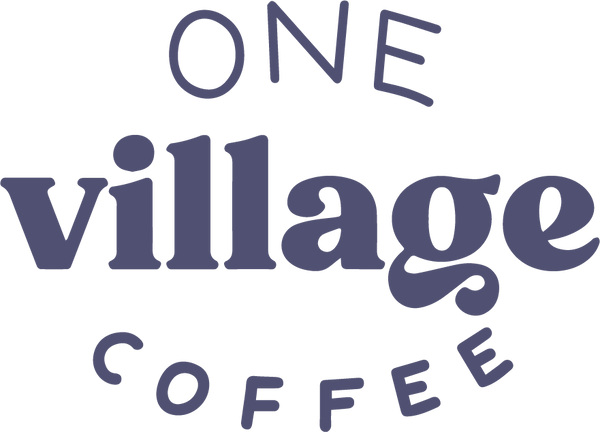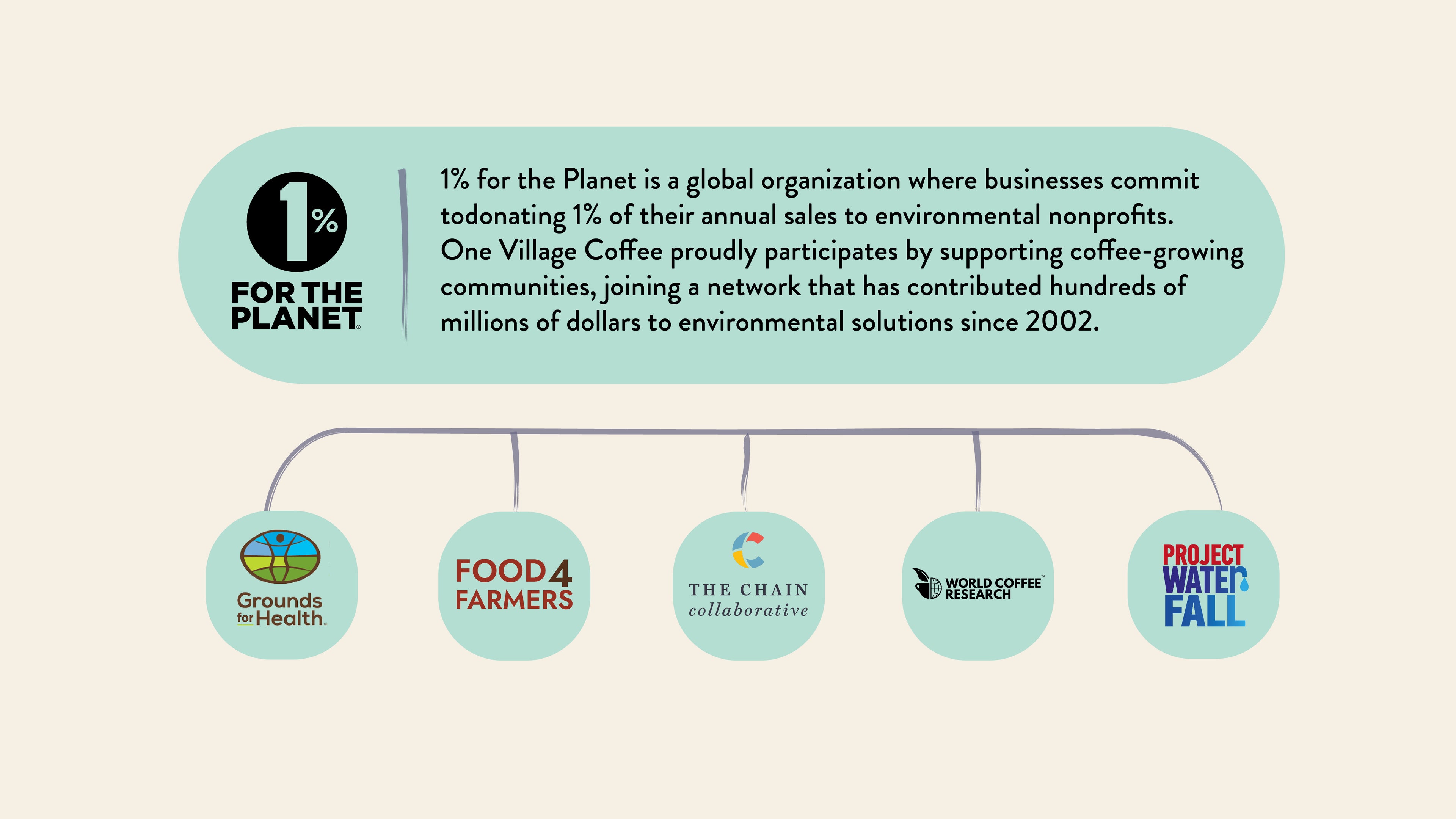
-
Grounds for Health
Learn MoreA nonprofit organization that works to prevent cervical cancer by providing screening and treatment services to women in coffee-growing communities.
-
Food for Farmers
Learn MoreA nonprofit that partners with coffee-farming families to address food insecurity and improve nutrition through sustainable agriculture and diversification programs.
-
The Chain Collaborative
Learn MoreA grassroots development organization that supports locally-led initiatives in coffee-growing communities through grants, training, and capacity building.
-
World Coffee Research
Learn MoreA research organization dedicated to protecting and improving the global supply of coffee through agricultural research, genetic preservation, and climate resilience studies.
-
Project Waterfall
Learn MoreA charity initiative that brings clean water and sanitation projects to coffee-growing communities through partnerships with coffee industry businesses.
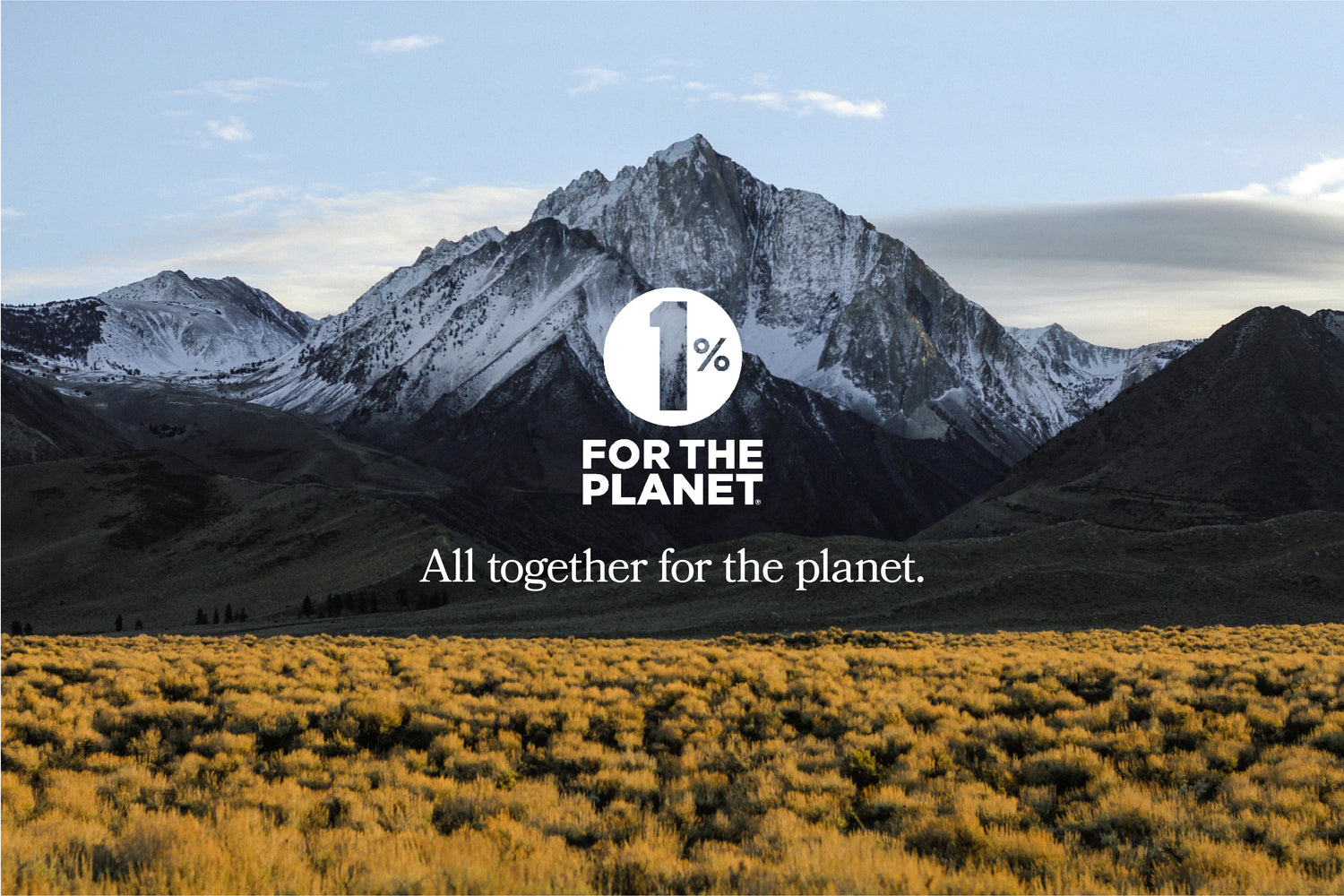
1% For The Planet
1% for the Planet represents a global movement that inspires businesses to support environmental solutions through a simple but powerful model: members commit to donating 1% of their annual sales to environmental causes. One Village Coffee exemplifies how coffee companies can create meaningful impact through this partnership by strategically directing 1% commitment to support organizations working within coffee-growing communities. Through our participation in 1% for the Planet, One Village Coffee amplifies their commitment to sustainability while ensuring financial contributions create meaningful impact by supporting thoroughly vetted environmental nonprofit partners who work directly in coffee-growing communities.
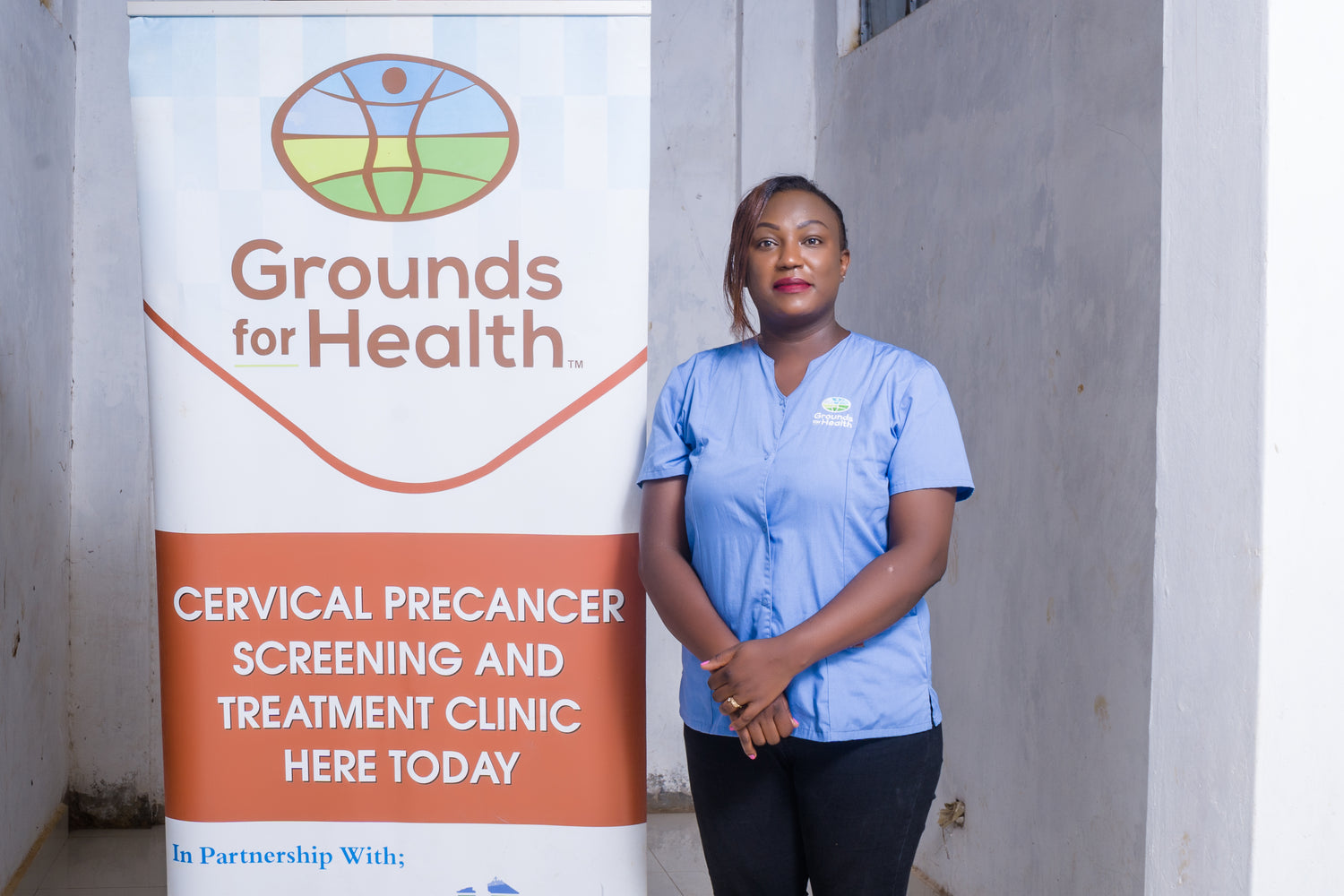
Grounds For Health
Grounds for Health has been working since 1996 to address cervical cancer in coffee-growing communities, focusing particularly on regions where access to healthcare is limited. The organization takes a comprehensive approach by not only providing direct screening and treatment services but also training local healthcare providers to ensure sustainable, long-term impact. They use a simple but effective "screen-and-treat" approach that can be completed in a single visit, making it particularly effective in rural areas. Their work has been especially impactful in countries like Peru, Nicaragua, and Ethiopia, where they've screened thousands of women and saved numerous lives through early detection and treatment.

Food4Farmers
Food4Farmers addresses a critical but often overlooked issue in coffee-growing regions: food insecurity among coffee farming families. Despite growing one of the world's most valuable commodities, many coffee farmers struggle to feed their families year-round, particularly during the "thin months" between harvests. The organization works directly with coffee-farming communities to implement sustainable solutions such as home gardens, beekeeping, chicken raising, and other diversification strategies. Their approach focuses on building long-term food security through education, technical assistance, and market access support, helping families become more resilient and less dependent on coffee as their sole source of income.

The Chain Collaborative
The Chain Collaborative takes a unique approach to development in coffee-growing regions by emphasizing local leadership and community-driven initiatives. Rather than imposing external solutions, they provide resources, training, and support to local leaders who understand their communities' needs best. Their grant program funds various projects, from agricultural improvement initiatives to education and environmental conservation efforts. The organization's emphasis on building local capacity and supporting grassroots leadership has led to more sustainable and effective development outcomes in coffee communities.
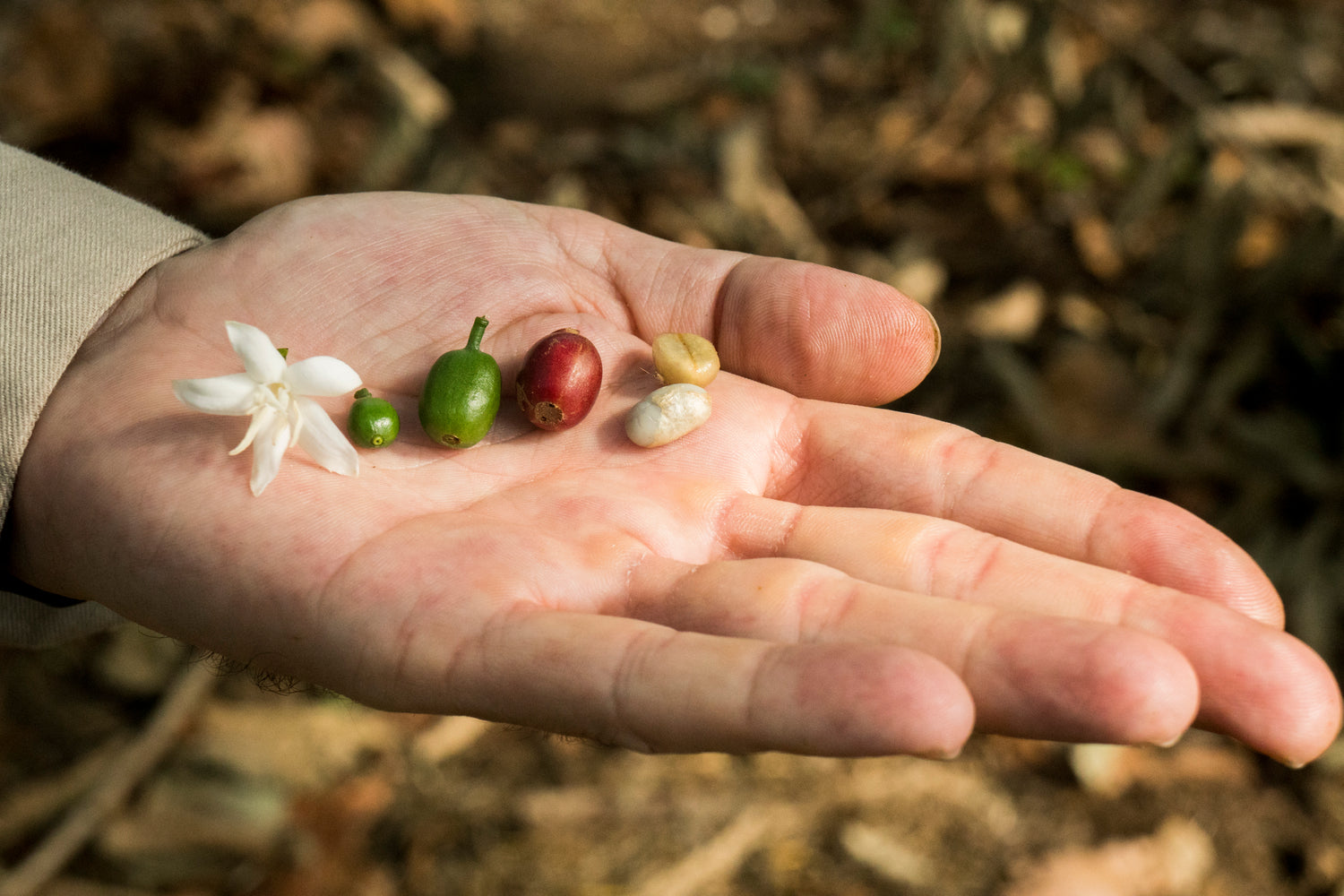
World Coffee Research
World Coffee Research is at the forefront of securing coffee's future in the face of climate change and other challenges. Their scientific research encompasses everything from developing more resilient coffee varieties to improving farming practices and studying coffee's genetic diversity. They maintain a global network of research trials and work closely with farmers to test and implement their findings. Their work is particularly crucial given the increasing threats to coffee production from climate change, diseases, and pests. The organization's efforts in preserving coffee genetic resources and developing climate-resilient varieties are essential for the long-term sustainability of the coffee industry.
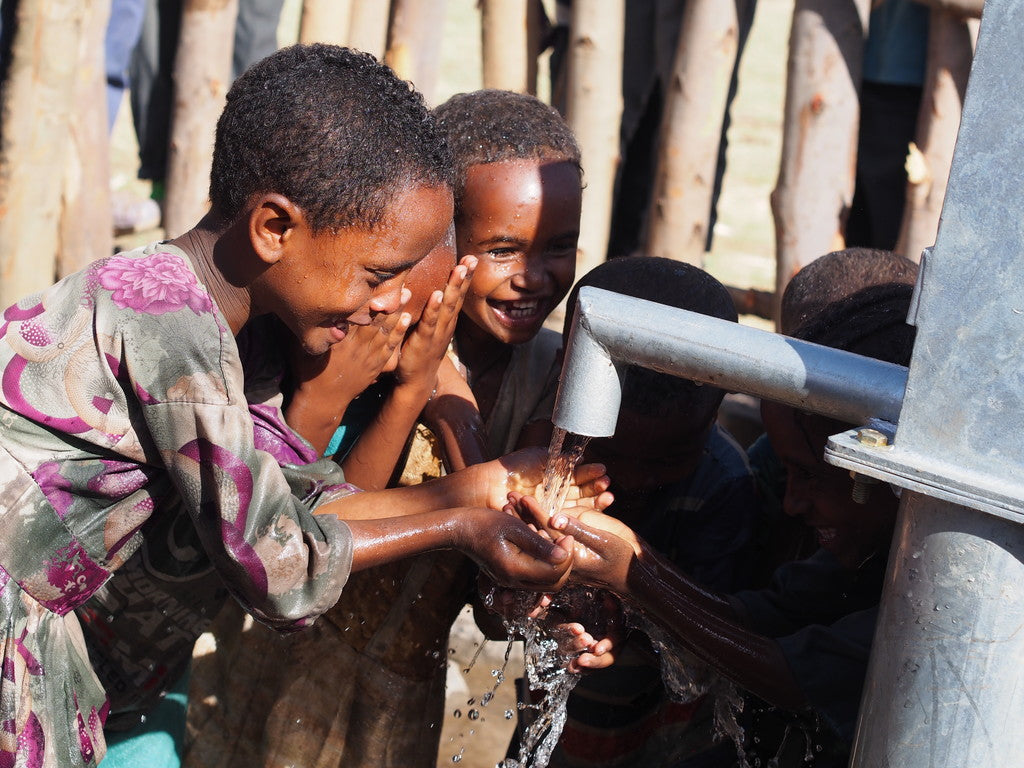
Project Waterfall
Project Waterfall takes on one of the most fundamental challenges in coffee-growing regions: access to clean water. The organization recognizes the irony that while coffee requires significant water resources to produce, many coffee-growing communities lack access to clean water and basic sanitation. They work with local partners to implement sustainable water projects, including well construction, pipeline systems, and sanitation facilities. Their projects not only improve community health but also support education, as access to clean water allows children, particularly girls, to attend school rather than spend hours collecting water. The organization has transformed thousands of lives through their water projects in countries like Ethiopia, Nicaragua, and Tanzania.
